Don't be afraid to get lost in words - contemporary poet An. Introduction to Carson
This article is an invitation to the 453th issue of "United Literature" magazine, published in the July issue of the column of contemporary masters.
Magazine purchase link: https://reurl.cc/LmE8oL
Foreword:
install. Anne Carson, born in Toronto in 1950, is an important Canadian literary poet. Her representative works are Autobiography of Red and The Beauty of the Husband. She is the first female poet to win the Eliot Prize for Poetry and a two-time Griffin Prize-winning author. A popular candidate for the Nobel Prize in Literature in recent years. She is also a scholar who teaches, translates and studies ancient Greek literature. Her first book, Eros the Bittersweet (Eros the Bittersweet), was her doctoral dissertation on the ancient Greek poetess Sappho. His recent works include Nox, Red Doc, and Float.
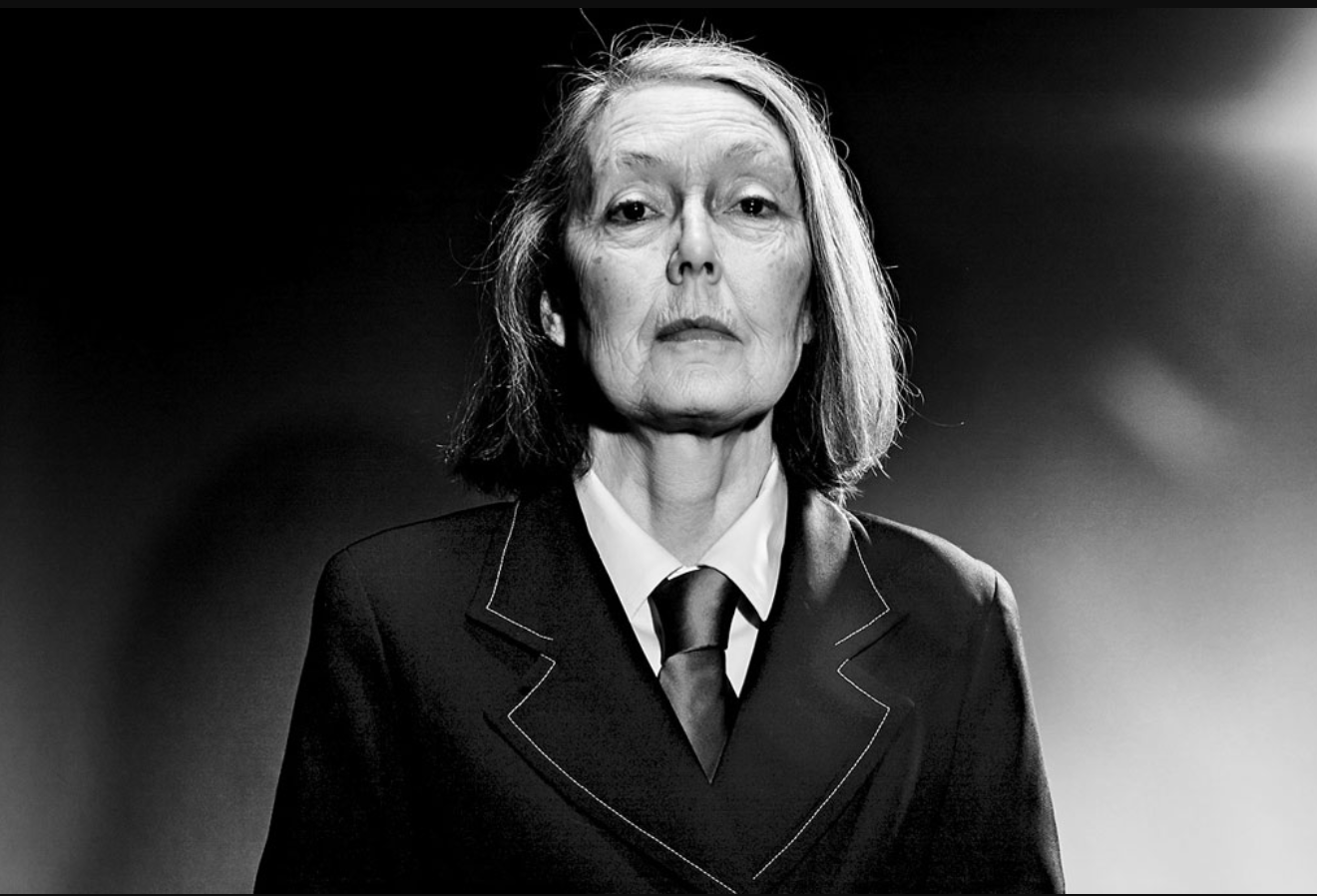
text:
For his own life, the Canadian poet Ann. Carson seldom discloses, and even deliberately keeps it secret, asking the publisher to only write on the author's introduction: "Ann Carson was born in Canada and made a living by teaching ancient Greek", refusing to give more information to readers. If you ask her about the creative trajectory behind the work or explain the content of the work, most of her responses are very brief or ambiguous, leaving people confused. Basically, she doesn't want people to understand her creation through her life, but try to enter the world of poetry in her own way.
Her poems are often interspersed with many quotations and allusions, which makes them look like a giant mystery (mystery) palace when they are studied. On this point, the reactions of readers and critics are very polar. Some people think that erudite citations make her things difficult to read, resulting in a lot of ambiguity and ambiguity. The emotions expressed are still very direct and profound. But what is more interesting is that An Kasen often mixes some prose and essays with interesting topics in his poetry collection. For her, poetry is not a style of writing, but a way of thinking that is more like wandering and prose.
Short Talks is her first book of poetry. All the poems in this collection of poems are deliberately arranged in a square shape, and are titled "A Brief Talk...", for example:
"A Brief Talk About Rain"
The night I left was darker than black olives. run over
Several palaces I am happy a little strange, it started to rain. these fans
Your form is ingenious anyway. Counting, I'm getting lost
. Who first came up with this idea? How does he describe it to people?
It was also raining at sea. Didn't hit anyone. [1]
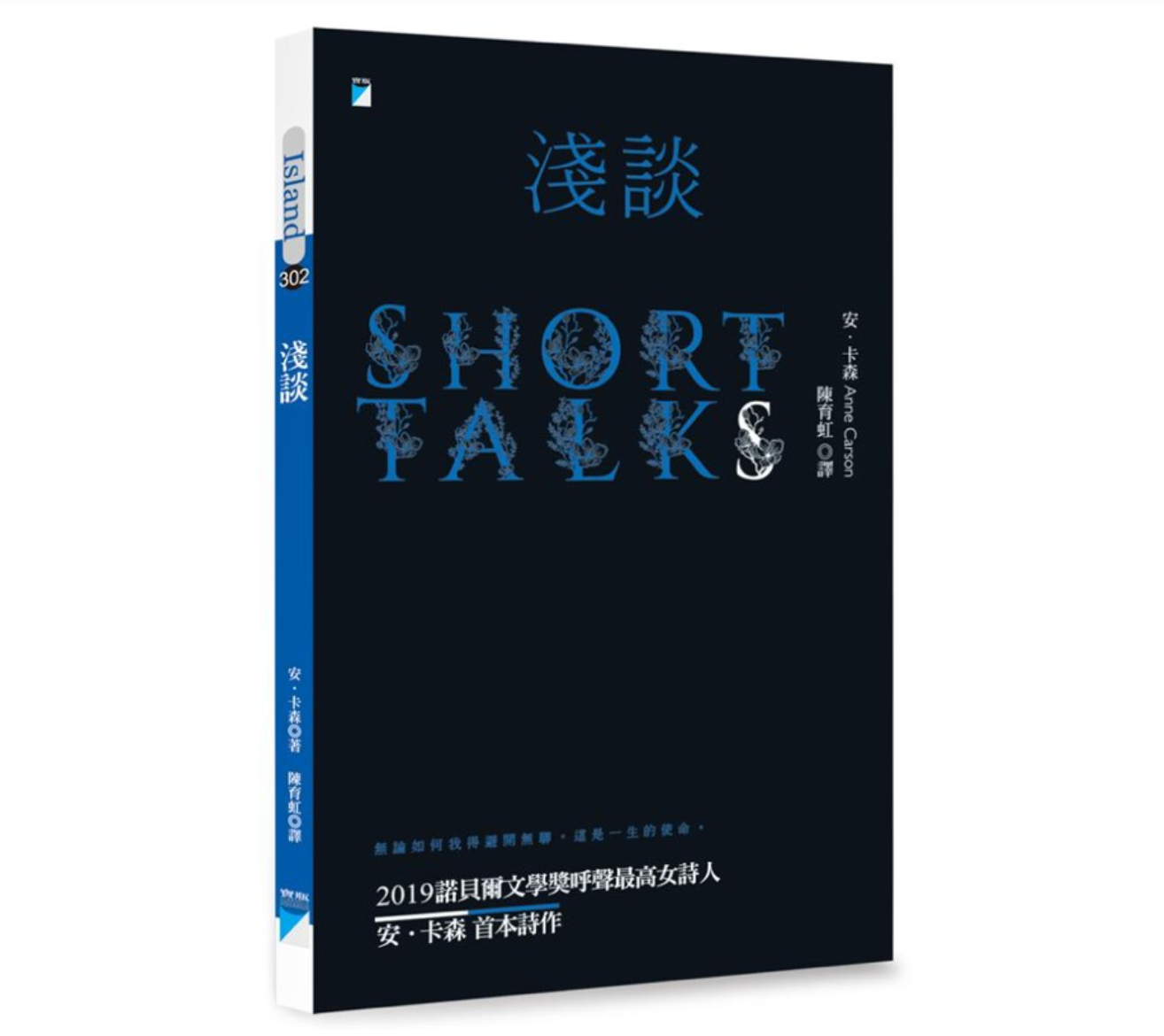
It can be found from this that An Kasen's poems are not difficult, but have a charming candor and casualness. Rather than poetry, her writing is more like essay-like prose, recording the occasional and special moments in life. But such prose seems to be more casual and free and easy. The text is like the author's mood "running all the way" between lines without punctuation, "happy a little weird" makes readers feel the peculiar flow of emotions, showing a kind of dexterous and lovely poetry, as if not afraid It doesn't matter if you feel lost, even if you lose the end of the poem in writing, because writing poetry is to let yourself get lost and indulge in it.
Not being afraid to feel lost is arguably one of Ancarson's beliefs about poetry. One of her poems, Men in the Off Hour, is titled "About the Thing I Think About the Most", and she answers in the first sentence: Error. It is the greatest pleasure of the poet to point out that it is the poet's greatest pleasure to enjoy his mistakes, and he believes that mistakes are not a denial of people, on the contrary, mistakes enrich people's experience and soul. In her collection of poems, Plainwater, she says that poetry is written to change the meaning of things. In other words, the most important spirit of creation is to constantly challenge the various "meanings" that we have been imposed on.
"The Truth About God"
my religion doesn't make any sense
and don't help me
So I pursued Him - from Glass, Irony, and God
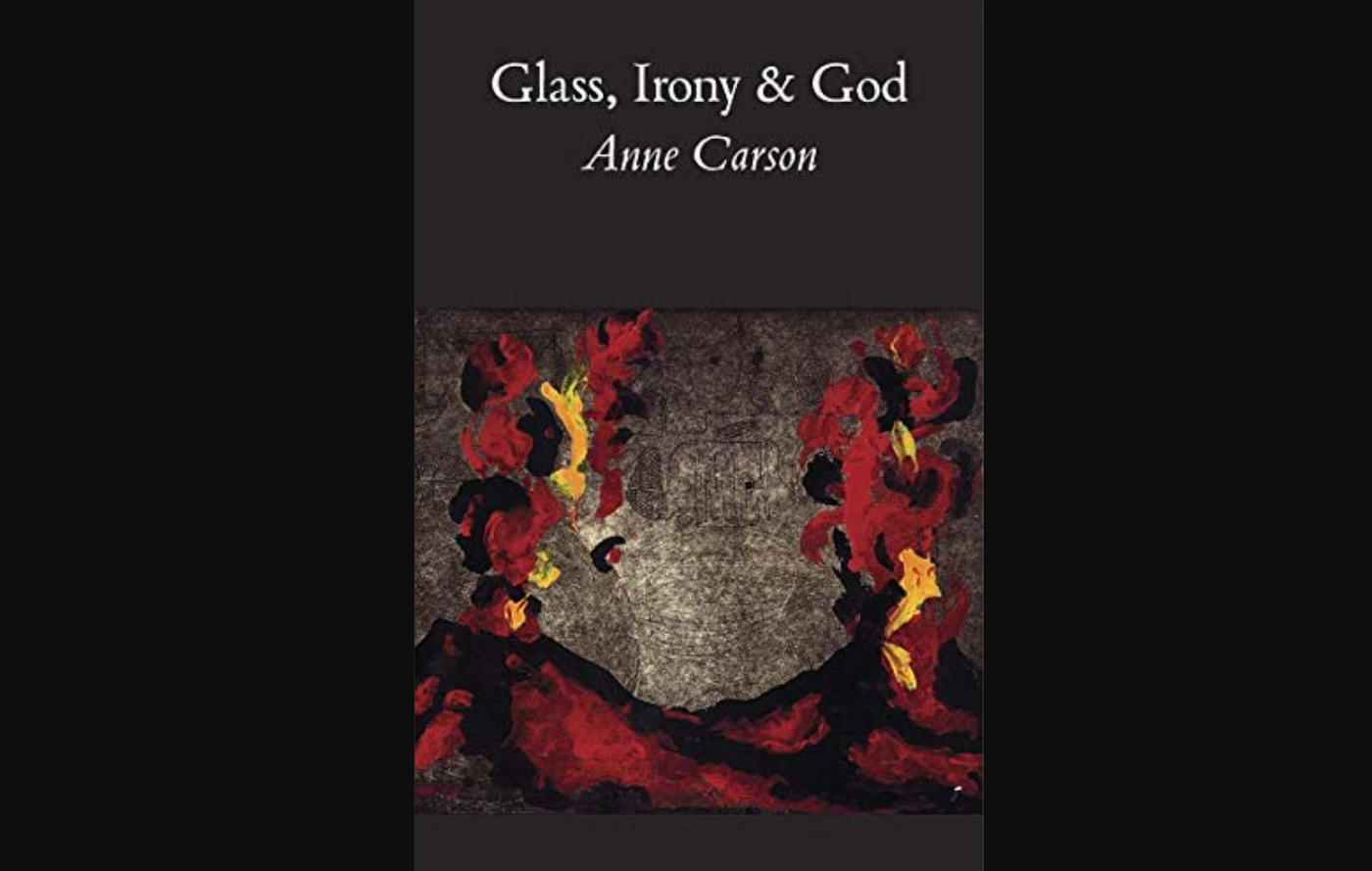
For Ankason, true poetry does not deliberately make meaning, but practises the wandering of meaning. But the most impressive thing about "Glass, Irony, and God" is its opening poem "Glass Essay," which is a long narrative poem describing the author's just breaking up with his lover and returning home alone to visit him. mother and father with Alzheimer's disease. The poem not only vividly depicts the image of the cold and desolate wilderness in the northern country, but also skillfully entangles these scenery with the sad and lonely state of mind. The estranged and fragile relationship with his family is described in glass-clear language, and the cold feelings and pain in his heart are fully revealed.
I saw a high mountain with a form on top of it against the hard air
Maybe it's just a bamboo pole to which old clothes are tied
but when i walked in
I saw that it was a human body
Trying to stand against the wind, the mountain wind is so fierce,
scraped off
skeleton
No pain.
wind
cleaning the bones
They are eye-catching, silver and a must.
It's not my body, not a woman's body,
It is the body of all of us.
It comes out of the light. [2]
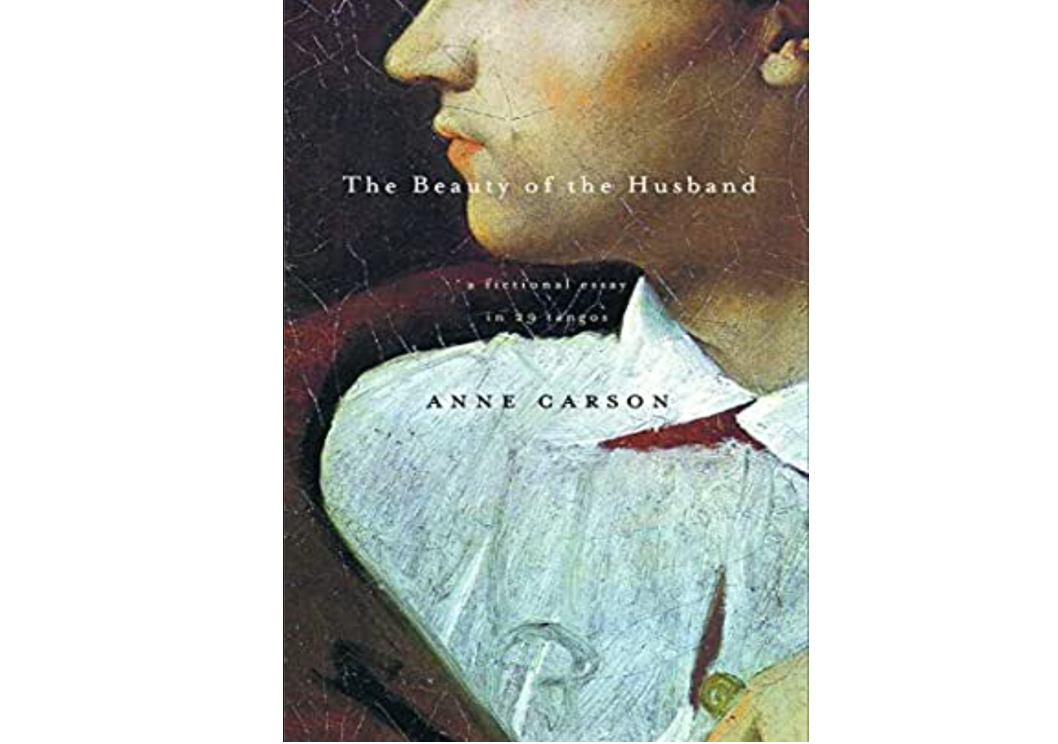
Ann Carson is a poet who is good at writing about the wounds in people's hearts. One of her masterpieces, The Beauty of Husband, is actually a book of wounds. In her eight-year marriage, she described the wounds left by the tearing and rift between husband and wife on her body. Through writing, she inquired about the contradictions of emotion and desire, and let these wounds come out of the light of words:
Wounds release their own light
surgeon says
If all the lights in the house go out
you can use the light it emits
dress yourself
Interestingly, looking at Ankason's writings, you will find that most of the wounds she writes are related to love. Her first book "Eros, Sweet Pain" is a research book that analyzes the Greek poetess Sapphire in detail. , is also an ideological discourse on love and desire. It can be found that the contradiction of erotic desire has been the subject of her attention very early. And her masterpiece "Red Autobiography" is a "myth book" with the theme of love's pain and hurt.
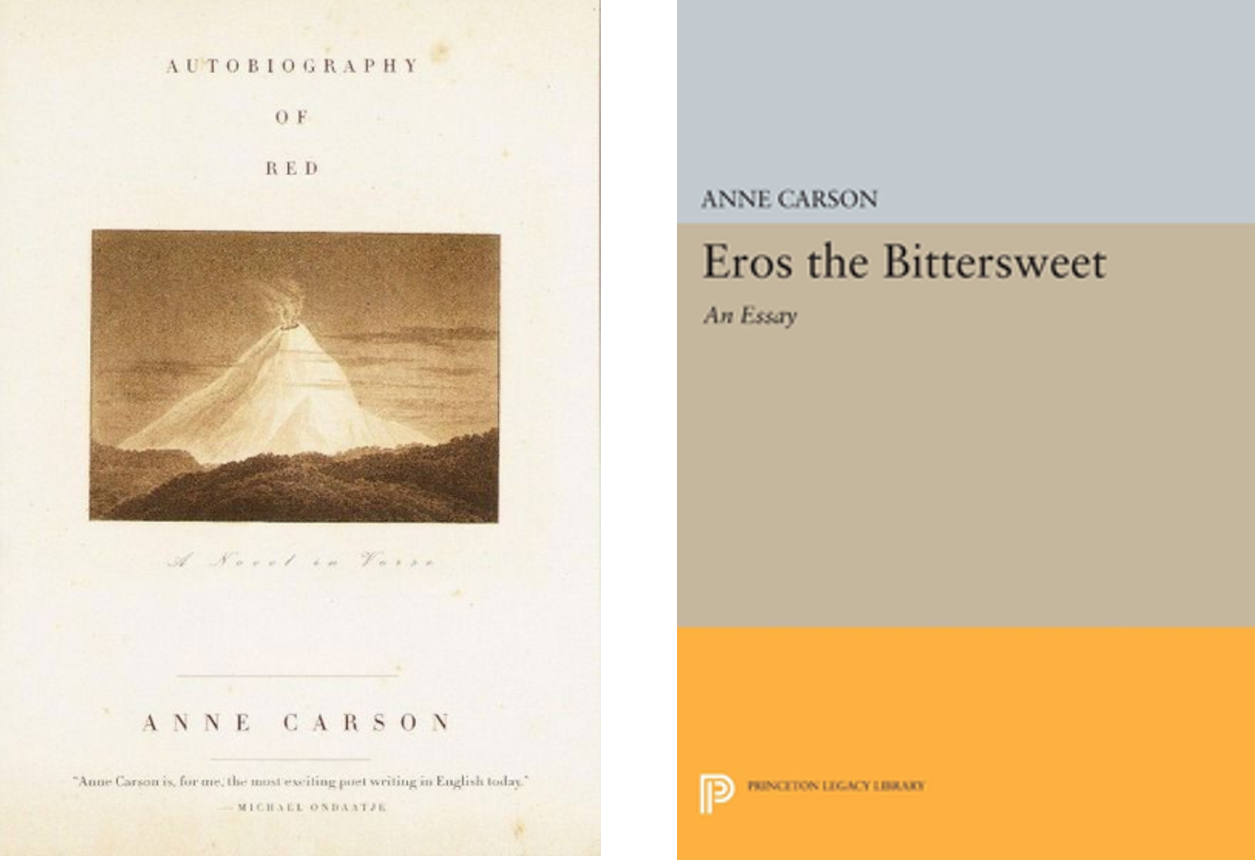
The birth of this collection of poems is related to the legend in Greek mythology that in order to complete twelve tasks, the hero Hercules had to kill the red monster Geryon and rob the red herd he was guarding. This myth is often rewritten by ancient poets to extol the valour of Hercules, but Ankason begins with a short essay introducing readers to the ancient Greek poet: Stesichorus. When the poet wrote this story, he was one of the few poets to write this myth not from Hercules' point of view, but from the red monster's point of view, describing Gruion's childhood, upbringing, and family, and these things The story of how he was destroyed in front of his eyes, rage fought with the hero, and finally died under the arrow.
Her article was titled: "What Has Stacy Cruise Changed? ”, and think about the meaning of poetry in this way. She then provides us with the preserved poems of Stacey Cruz, as well as several appendices to give readers a deeper understanding of the age and life of this ancient poet and interesting anecdotes, including Anka Mori designed a fictional interview and philosophical dialectic for the poet, before finally attaching his own collection of poems, The Autobiography of Hong.
This arrangement gives readers a very special feeling, because it seems that we are not just reading poetry, but roaming in different archive clips, freely absorbing things that attract us. While there are plenty of erudite citations, Ancarson's witty prose and subtle associative reflections make these things no longer a dull historical study or ancient literature, but rather as new stories unfold before our eyes. The final verse, "The Autobiography of Red", is not a rewriting of mythology, but more like extracting and transforming the most violent impressions I felt in Stacy Cruz's poems: that is, red, love, and pain. The elements of writing are injected into another modern love story, forming a kind of modern "myth", which once again reflects her concept of poetry: creation is to give new meaning to things.
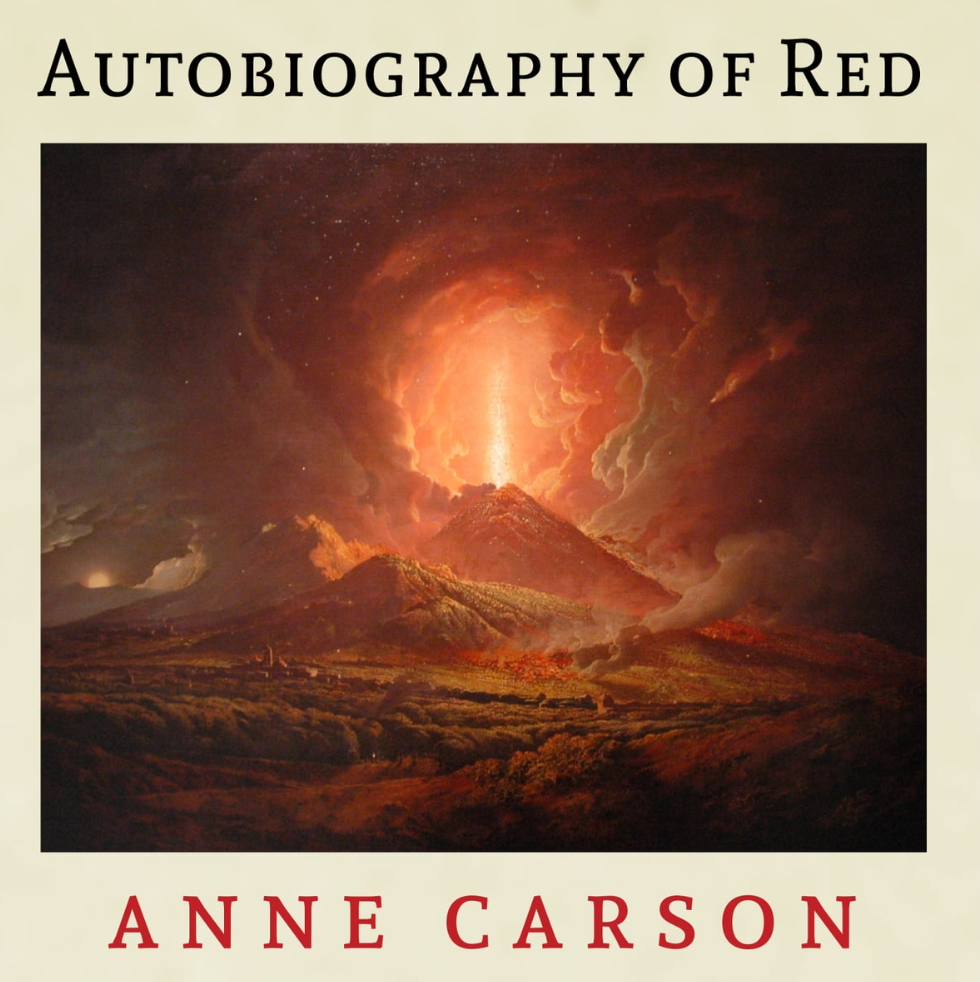
FB Fan: https://pse.is/TCBRA
IG account: https://www.instagram.com/bungoussteins/
[1] The translation here comes from "A Brief Talk", An. Written by Carson, translated by Chen Yuhong, Aquarius Press, 2020.
[2] The translation here comes from "The Autobiography of Red", Anne. Carson, translated by Huang Qian, Yilin Press, 2021.
Further reading:
Like my work? Don't forget to support and clap, let me know that you are with me on the road of creation. Keep this enthusiasm together!
